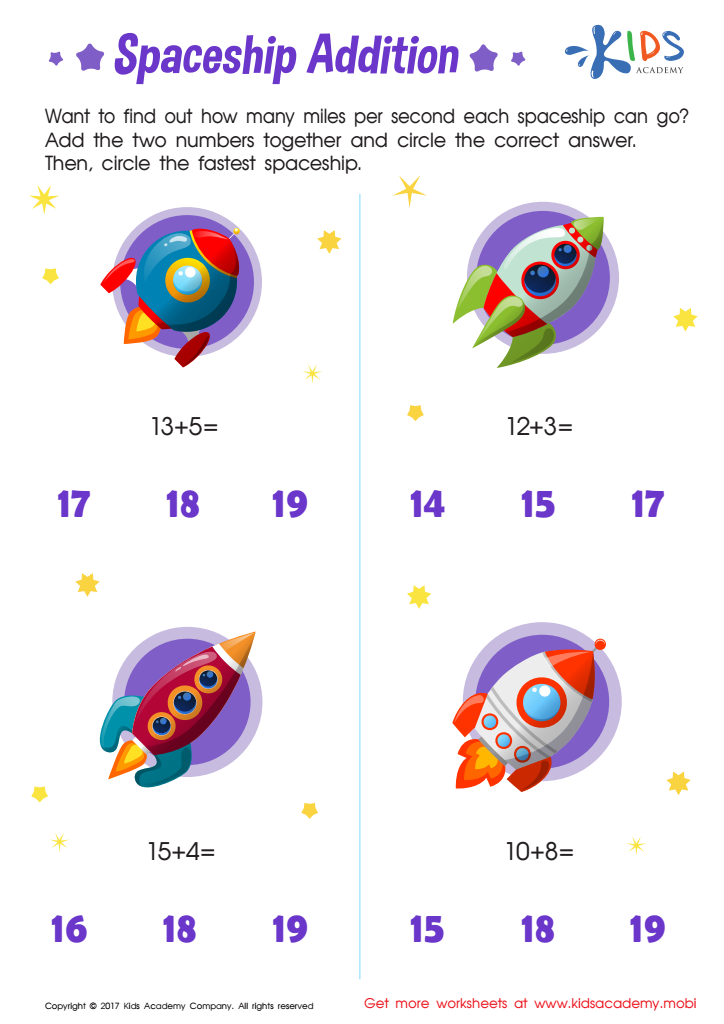Mental math skills Normal Addition & Subtraction Worksheets for Ages 4-7
10 filtered results
-
From - To
Boost your child’s mental math skills with our engaging Normal Addition and Subtraction Worksheets, designed specifically for ages 4 to 7. These worksheets focus on developing essential arithmetic concepts through fun and interactive exercises. As your child practices regular addition and subtraction, they'll build confidence and speed in their calculations. Our curriculum aligns with early learning standards, ensuring that each worksheet promotes fundamental math skills. With colorful illustrations and age-appropriate problems, learning becomes an enjoyable adventure. Download our worksheets today and watch your child develop a strong foundation in mental math that will benefit them throughout their academic journey!
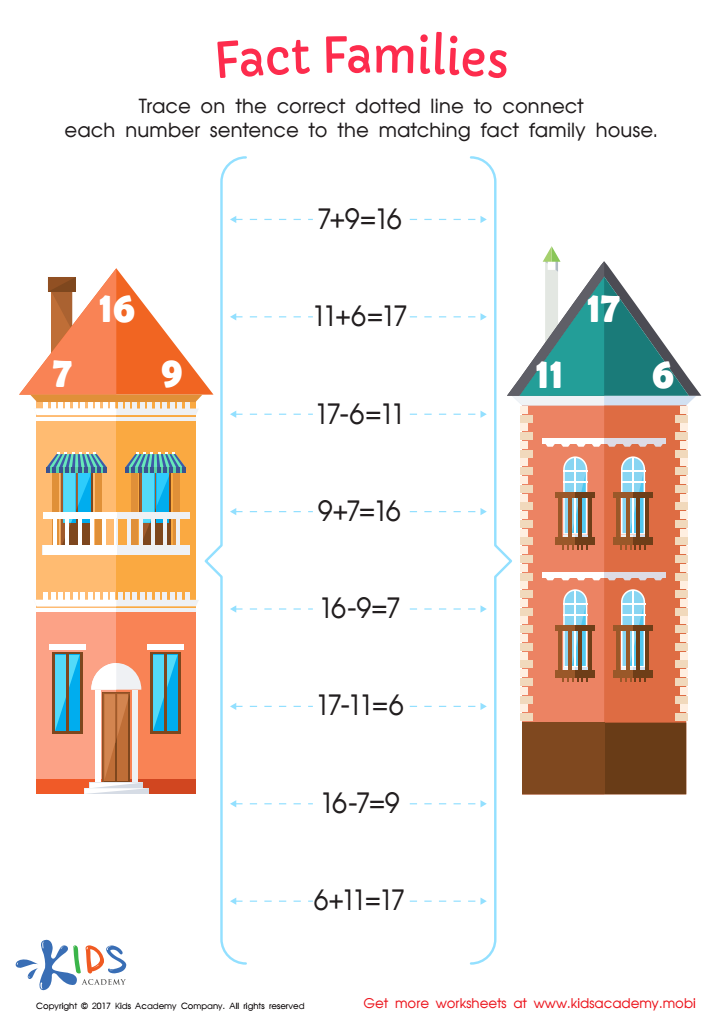

Fact Families — Add and Subtract Worksheet
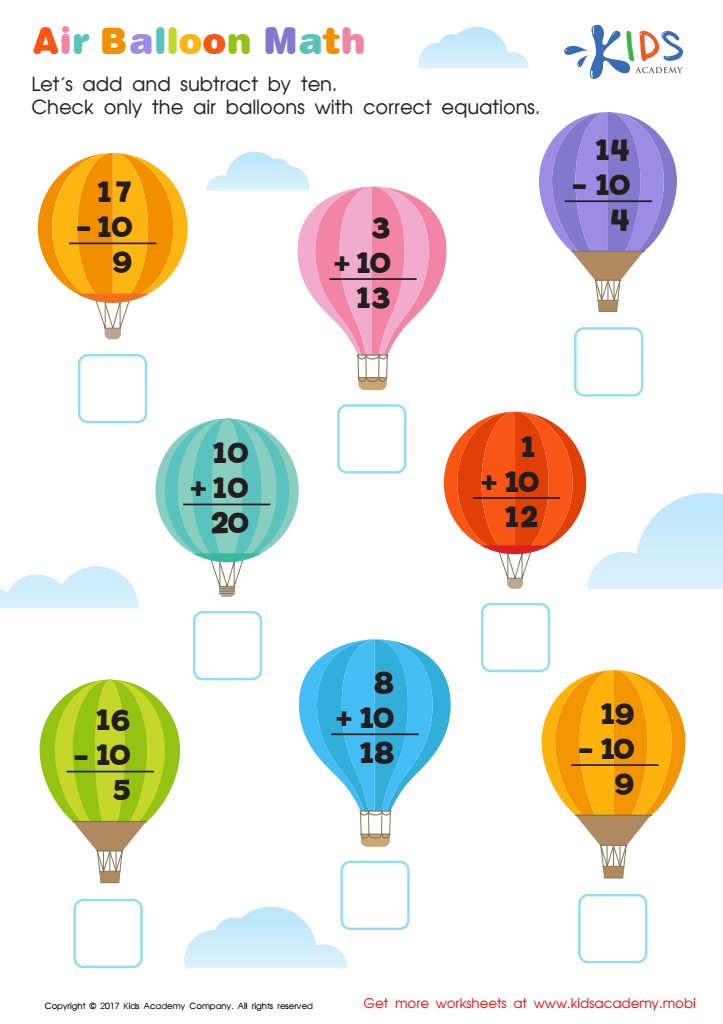

Air Balloon Math Worksheet
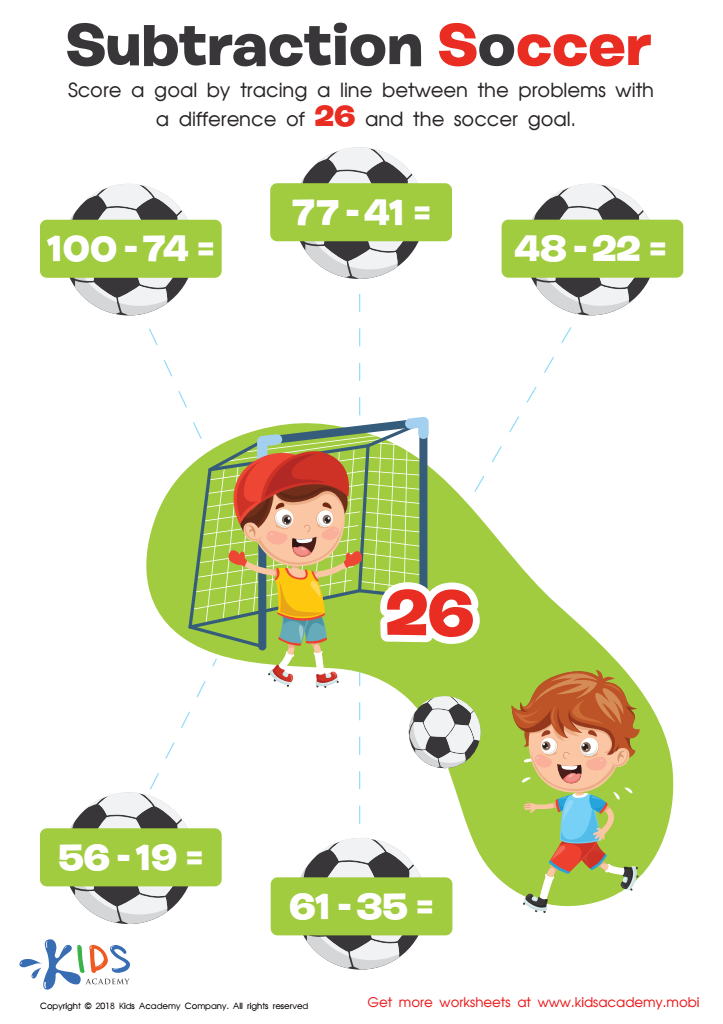

Subtraction Soccer Worksheet
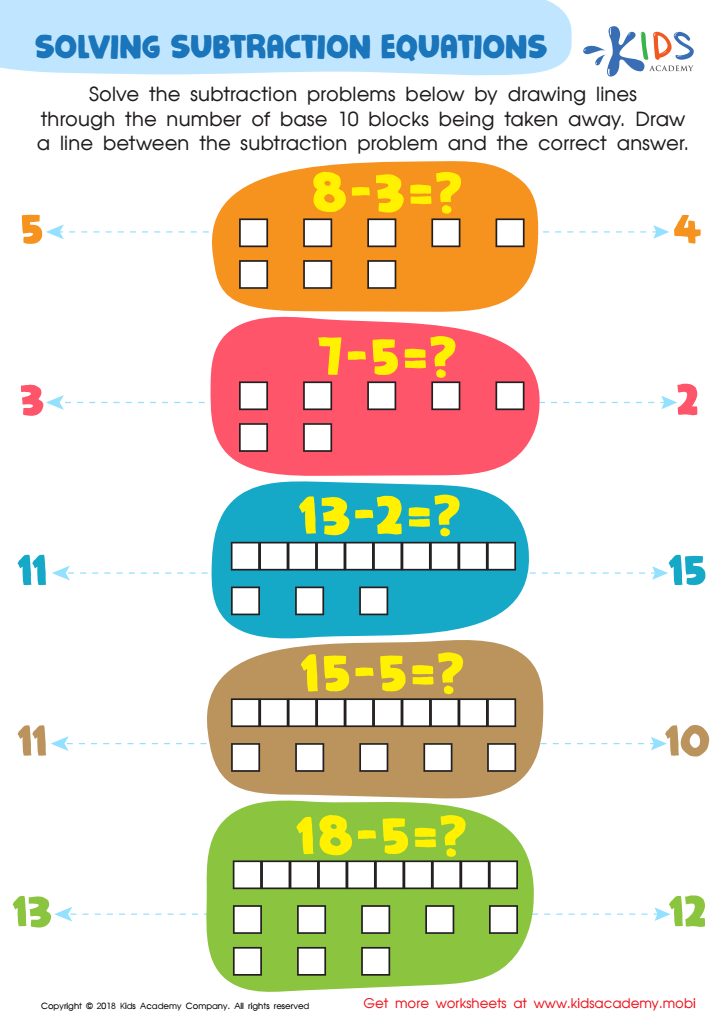

Solving Subtraction Equations Worksheet
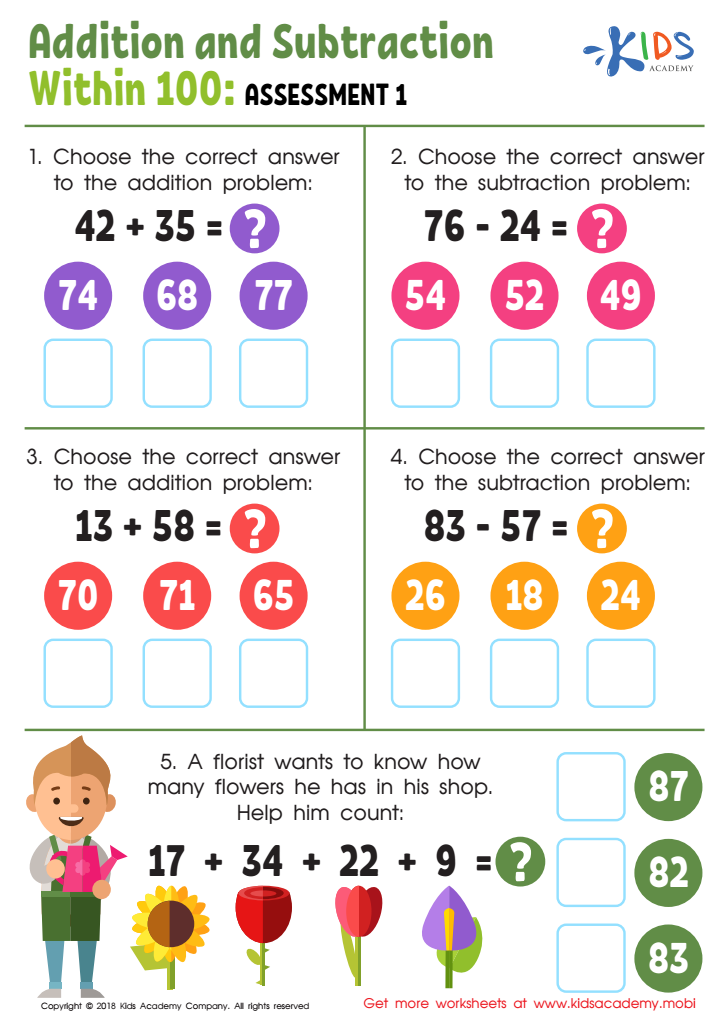

Addition and Subtraction Within 100 Worksheet
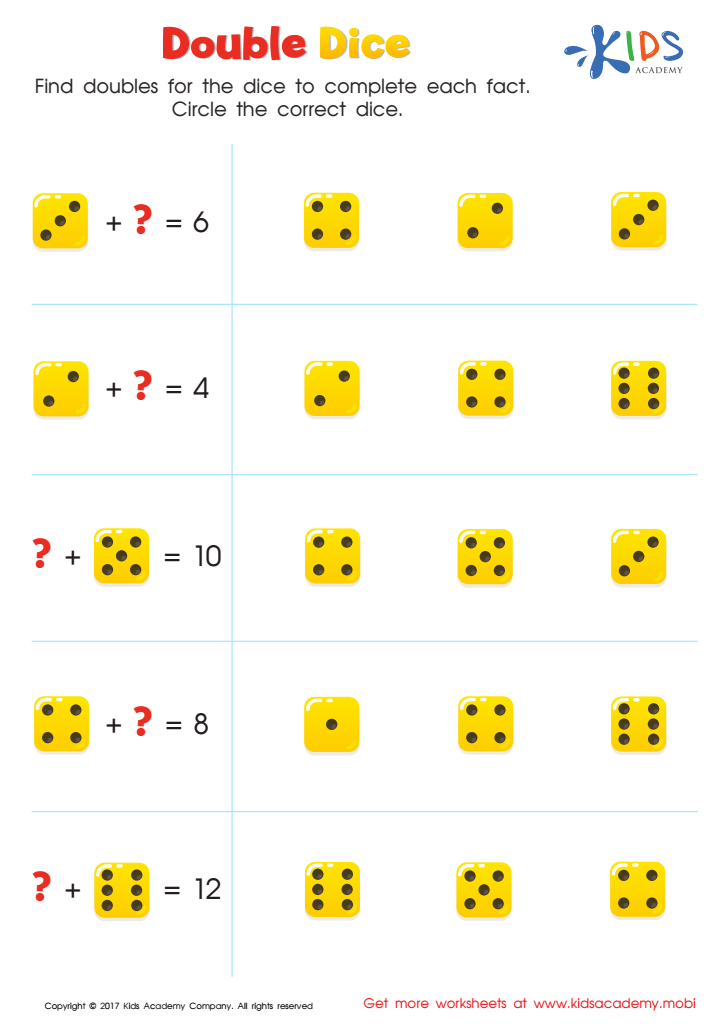

Addition Facts: Double Dice Worksheet
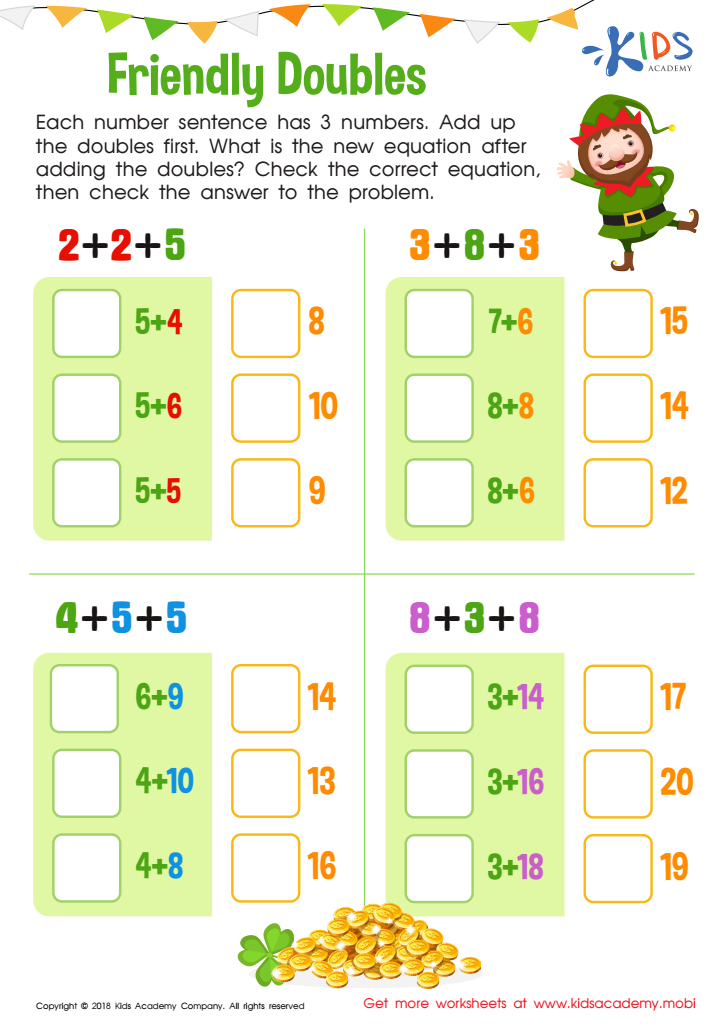

Friendly Doubles Worksheet
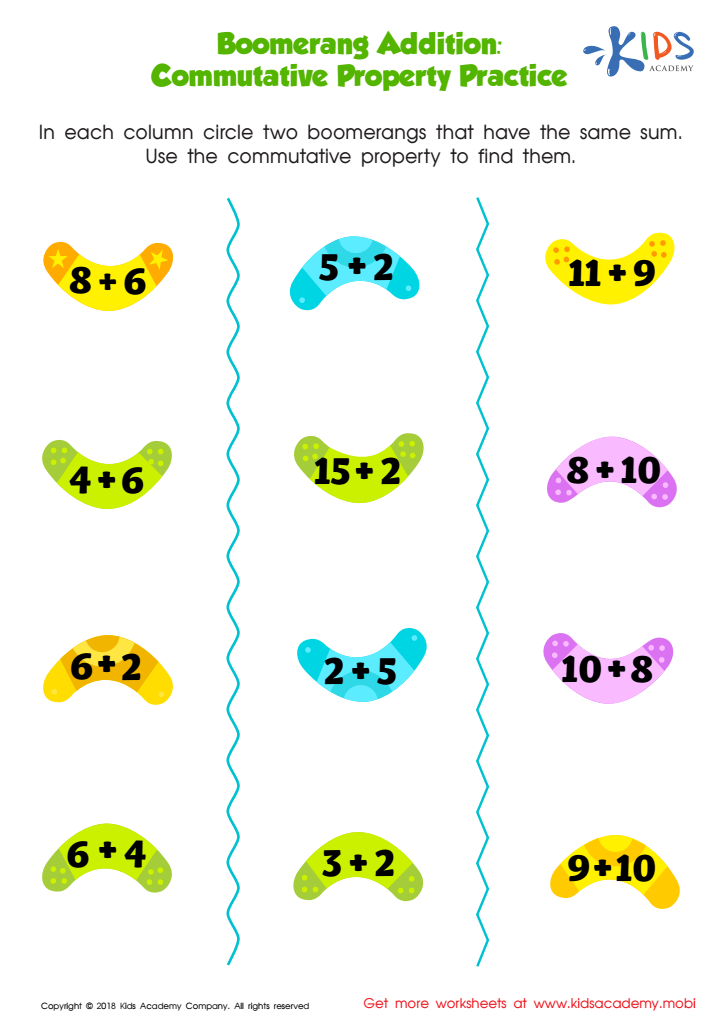

Boomerang Addition Worksheet
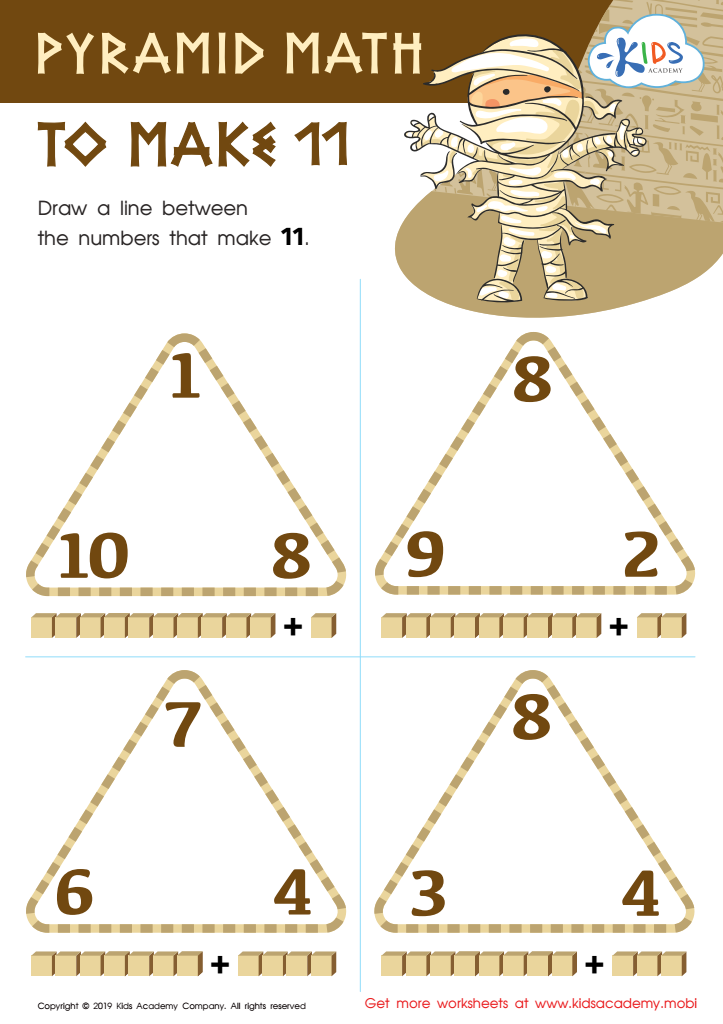

Pyramid Math to Make 11 Worksheet
Mental math skills, particularly in normal addition and subtraction, are crucial for children aged 4-7. At this age, children are developing foundational numeracy skills that enhance their overall cognitive abilities. When parents and teachers emphasize mental math, they foster critical thinking and problem-solving skills, encouraging children to become more independent learners.
Mastering addition and subtraction mentally not only builds confidence in young learners but also prepares them for more complex mathematical concepts later on. It helps in developing number sense, enabling children to understand the relationships between numbers, quantities, and operations. This fluency can contribute to better performance in school and in real-life situations, such as making change or managing time.
Additionally, mental math exercises can be fun and engaging, integrating play into learning. Parents and teachers can create games and interactive activities that make math enjoyable and reduce anxiety around the subject. Early proficiency in mental math lays the groundwork for a positive attitude toward mathematics and reinforces the idea that math can be both accessible and exciting. Ultimately, fostering these skills empowers children and supports their academic and emotional growth, making it essential for parents and teachers to prioritize them.
 Assign to My Students
Assign to My Students
